Imagine for a moment — you are reading to a sweet six year old grandchild. Perhaps you have silvery hair and a few wrinkles. Or perhaps you are not there, yet. This six year old snuggles close and hands you a picture book to read out loud. The pages reveal a bouncy rhyming rhythm, children, an older character, and unfortunately — words like fusty, dusty, rusty, and musty. Also grumpy and frumpy.

Do you?
- Read with your good nature intact and shrug it off
- Stop mid-page and throw the book at the wall
- Quickly recapture the Pig Latin of your youth and improvise…ustyfay, ustyday, ustyray, umpygray!
Personally, I look forward to being a Nana someday soon, but my Pig Latin is no longer that good, and my grown kids will tell you that I would never choose option A.
Modern day children’s books riddled with negative stereotypes of age? Sadly yes, they are all too easy to find. In part because publishers desire a child protagonist. This necessitates adding a problem if the writer includes an older character. Many authors reach for stereotypes, because much of what we think we know about growing older is myth, not fact. But stereotyping older adults contributes to ageism. And in the end that hurts us all.
From where I sit, writing picture books, there seems to be three basic types to beware of:
- Those that totally exploit the stereotypes (sadly, madly, and badly).
- Those that are well-meaning, even tender, but perpetuate “older adult means lonely, sick, forgetful, dependent….”
- Those with illustrations sending messages that older people are funny, freaky, frumpy or foolish.
Fortunately, picture books do exist that make having many, many birthdays seem like a good thing. Those that show late life as interesting and rewarding. And portray aging as a lifelong process, both normal and natural.
It truly matters what young children believe. Research conducted by Becca Levy, Ph.D. of Yale University finds that taking in negative age stereotypes shapes our older years and even shortens our lives. Simply seeing old age and aging in a positive light helps us make good decisions, affects our cardiovascular health and helps us live longer and healthier. By up to 7.5 years!
We become what we think as we get older. Today’s children are likely to live long. Let’s all plant the seeds for their late life health and happiness. Normal aging is NOT about stereotypes like decline and death, illness and dementia, or loneliness and grumpiness. In fact, research tells us there is a “U‑curve of happiness” — with happiness peaking in childhood and late life. Our older years are most often a time of satisfaction and growth.
Sandra L. McGuire RN, EdD has long studied images of aging in children’s literature. She notes that far too many are negative, or make older adults invisible. “I like picture books that portray older adults in diverse roles like leaders, workers, volunteers, artists, teachers and caregivers,” says Dr. McGuire. “Biographical books that illustrate growing up and growing older are important also.”
Older adults are actually an interesting bunch. Ageism robs us of the recognition that we possess skills and strengths because of our age and experience. It steals away individuality causing youngers to believe in a monolithic “elderly.”
On my website and blog “A is for Aging” Dr. McGuire and I highlight picture books that portray older adults and growing older in positive, affirming ways. Minus the negative age stereotypes. Older role models, even in picture books, show us the knowledge, inner strength and creativity in people in later life. Let’s show kids terrific older role models. Let’s all make an effort to nip ageism in the bud.
For starters, please check out this list of current non-stereotypic picture books about older adults. Many more are listed at www.lindseymcdivitt.com. Please consider signing up for blog posts reviews of new “Positive Aging” picture books.
- Grandparents by Chema Heras
- Harry and Walter by Kathy Stinson
- Henri’s Scissors by Jeanette Winter
- Jingle Dancer by Cynthia Leitich Smith
- Julián is a Mermaid by Jessica Love
- George Baker by Amy Hest
- McGinty’s Monarchs by Linda Vander Heyden
- My Teacher by James Ransome
- Nature’s Friend: The Gwen Frostic Story by Lindsey McDivitt
- Northwoods Girl and Miss Colfax’s Light by Aimee Bissonette
- The Ocean Calls by Tina Cho
- The Wakame Gatherers by Holly Thompson


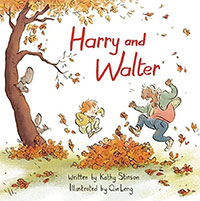
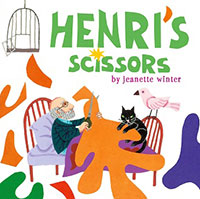
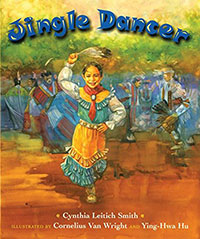
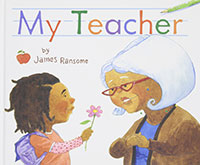
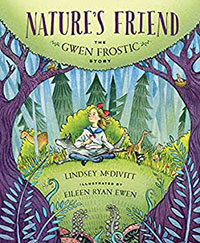
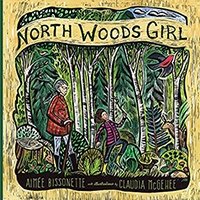
Thank you for this article! Thoughts about aging certainly do contribute to whether one has a positive or negative experience. It’s helpful for everyone to have the expectation that adults of mature years will have vital, engaging, and happy lives.